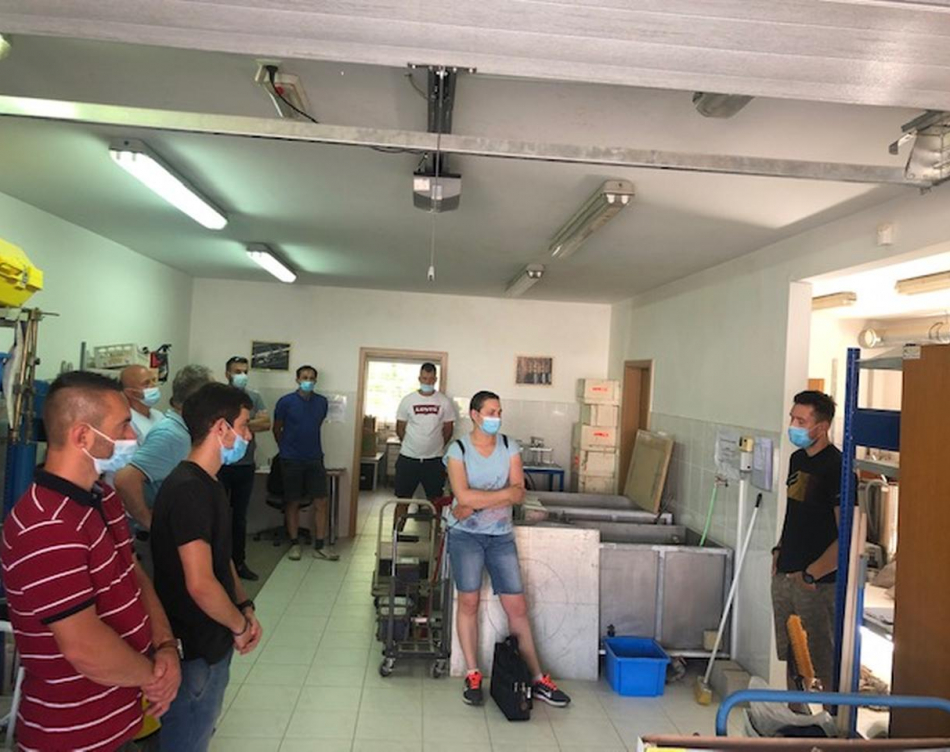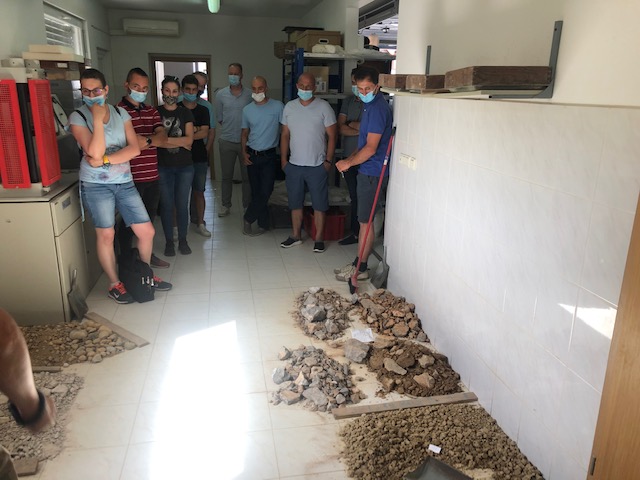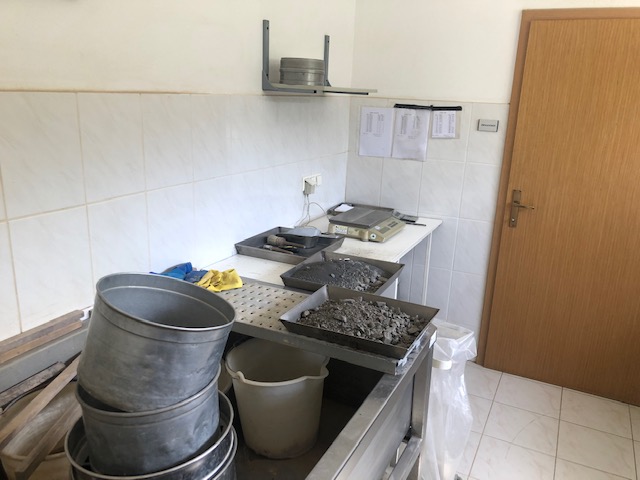Vas zanima študij pri nas?
Izpolnite spodnji obrazec za prijavo v program. V roku enega dneva vam bomo posredovali vse potrebne informacije o vpisu.
Construction & Civil Engineering

The student of the study programme Construction & Civil Engineering carried out their laboratory tutorials for the course Materials at the company APROS d. o. o.

The laboratory tutorials covered the process of determining the grain size distribution of soils and stones and the importance and application of this process in the construction industry, in particular for the preparation of concrete with specific characteristics for appropriate construction purposes.

The Slovenian company APROS-Gradbeni laboratorij in storitve d.o.o. has become one of the most important construction laboratories in Slovenia, after its foundation in 1994. Their work helps construction companies and investors.
They cooperate in various programmes and investments with municipalities across Slovenia and with companies such as DARS, DRSC-DRI, the Slovenian Railways, etc.
Students had the opportunity to learn about the company’s geomechanical and geotechnical services as well.